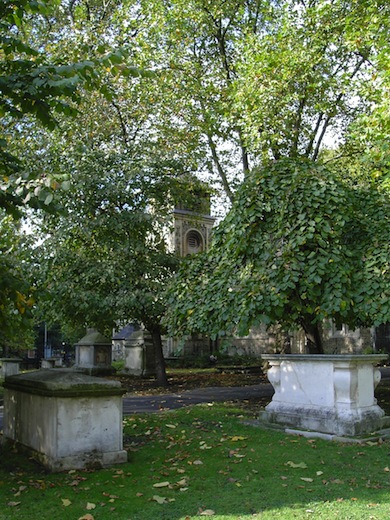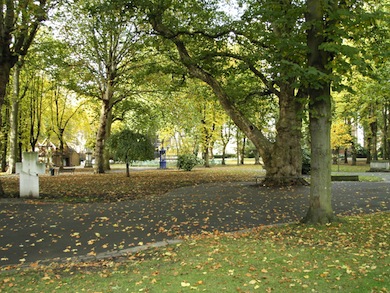This old churchyard was opened in 1891 and is one of the oldest sites of Christian worship in Europe. Many headstones have been moved to the perimeter with only the larger monuments left in situ. There is open access to the general public during daylight hours and monuments include that to Sir John Soanes’ wife, which inspired the design of the British red telephone box.
Local Wildlife Site
Accessible Sites of Importance for Nature Conservation
St Pancras Gardens
Borough: Camden
Grade: Borough Grade II
Access: Free public access (all/most of site)
Area: 2.17 ha
Description
Wildlife
The site contains some fine mature trees, particularly London plane, common lime and poplar as well as diverse planted shrubberies. In an area behind the church there is an unusual tree which has grown to penetrate some of the gravestones, so that the wood and the stone are now combined. A few of the monuments have a sparse covering of lichens and mosses Beside the railway boundary two nature areas have been established that include the insect attracting creeping thistle, common knapweed, field scabious, oxeye daisy, salad burnet and common nettle. Field madder, an unusual plant for urban London, is also present.Facilities
Historic features; sculptures/ monuments
St Pancras Gardens © Moy Cash

St Pancras Gardens © Moy Cash
Feedback
Have a question or a comment for this site, or notice anything missing or out of date? Please contact us.
